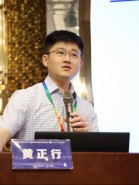

Prof. Yi Pan
Shenzhen University of Advanced Technology, China
Yi Pan is currently the Dean and Chair Professor at the School of Computer Science and Control Engineering, Shenzhen Institute of Technology. He is also a Regents’ Professor Emeritus at Georgia State University, USA. He is a Fellow of the American Institute for Medical and Biological Engineering (AIMBE) and a Fellow of the Royal Society for Public Health (UK).
His primary research focuses on bioinformatics and medical informatics, leveraging technologies such as cloud computing, big data analytics, artificial intelligence, and deep learning.
Title: AI Large Language Models: Recent Development and Applications in Biopharmaceutical Field
Abstract: Starting from the current state of generative artificial intelligence (AIGC) and large language models (LLMs), I will first discuss the basic principles and shortcomings of the latest AIGC products, such as ChatGPT and Sora, along with their future improvements and development trends. I will mainly elaborate on the important roles and value of AIGC in the biopharmaceutical field. Recently, ChatGPT outperformed 17 doctors by accurately diagnosing a rare disease in a 4-year-old boy. This demonstrates that, when applied appropriately, AI can indeed become an assistant in diagnosing and treating diseases. However, a study published in JAMA by Brigham and Women’s Hospital, affiliated with Harvard University, showed that ChatGPT's cancer treatment recommendations were only completely accurate in 62% of cases, indicating that its results should be applied cautiously. One solution to this issue is the use of content detection tools, such as AIGC-X and ZeroGPT. The vast information behind ChatGPT is an advantage, but in specialized fields, it also brings the downside of excessive interference information. To address this, our team has developed a large language model knowledge vector library system for autism that reduces training time and achieves similar objectives using only a small amount of training data. This lecture will also introduce the use of AIGC in designing new drug molecules. By inputting numerous small drug molecules related to the treatment of a particular disease into the AIGC system, new drug molecules can be generated. Coupled with our powerful AI drug screening capabilities, we have the potential to design new drugs suitable for specific targets.

Prof. Zhisheng Huang
Vrije Universiteit Amsterdam, The Netherlands
Professor Zhisheng Huang is a tenured senior researcher at the Department of Artificial Intelligence of VU University Amsterdam, the Netherlands, and a professor at the Mental Health Center Affiliated to Tongji University, China. Prof. Huang is the founder of Tree-Hole Rescue Team, an organization consists of more than 1,000 volunteers for suicide prevention and rescue. Prof. Huang is the chief scientist of Intelligent Science at Deepblue AI Technology China and the chief scientist of AI at Haoxinqing Health Industry Group. Prof. Huang obtained a doctorate degree in computer science and logic at the University of Amsterdam in 1994. He has published more than 300 papers and more than 9 books in Artificial Intelligence, logics, and multimedia. He received the Best Paper Award for the paper entitled “Feasibility Estimation for Clinical Trials” at the 2014 International Conference on Health Informatics (HEALTHINF/BIOSTEC).
Title: Extended Knowledge Graphs of Depression with LLM-enhanced Relation Extraction
Abstract: Depression is a common and serious mood disorder characterized by persistent sadness, loss of interest or pleasure, and a range of emotional and physical problems that impair daily functioning.
A knowledge graph is a semantic network that represents entities (like diseases, symptoms, genes, drugs) and their relationships in a structured, machine-readable format. In healthcare, it enables integration, inference, and discovery from large heterogeneous data sources. Knowledge graphs are a powerful tool for visualizing and understanding complex relationships between different entities in various domains, including mental health. For depression, a knowledge graph can help illustrate the relationships between symptoms, causes, treatments, comorbid conditions, and other relevant factors and provide an efficient approach for the semantic analysis on the literature on depression. In this paper, we present our extended work on the construction of Knowledge Graphs of Depression. It integrates a wide range of knowledge resources related to Depression, including metadata of medical literature, and their semantic annotations with well-known medical terminologies/ontologies such as SNOMED CT and UMLS. It provides a basic integration foundation of knowledge and data concerning depression for a comprehensive analysis. Moreover, we present the work how the extended knowledge graphs of depression can be enhanced with the support of Large Language Models (LLMs) for the relation extraction on Knowledge Graphs. We present two case studies of knowledge graphs of depression: i) exploration on the relations between depression and childhood trauma, and ii) investigation on non-suicidal self injury behaviors with depression. Based on those two case studies, we will illustrate how Knowledge Graphs can be used for investigating various clinical scenarios with semantic analysis by the literature mining and gain a comprehensive analysis on those problems of depression patients, and how Large Language Models can be used for relation extraction to enhance the construction of knowledge graphs.

Prof. Zhengxing Huang
Zhejiang University, China
Huang Zhengxing is currently a professor and Ph.D. advisor at the Institute of Artificial Intelligence of Zhejiang University. His research focuses on the transformation of clinical decision-making paradigms—a cutting-edge interdisciplinary field that spans clinical medicine, information science, and data science. He conducts research on knowledge and data-driven intelligent clinical decision support methods, which encompass the processes from data to knowledge and from knowledge to decision-making.
Professor Huang has published or had accepted over 80 papers in prominent national and international academic journals and conferences in the areas of data mining and medical artificial intelligence, including JAMA Network Open, EClinicalMedicine, and IEEE TBME. His research work has been positively cited in numerous reviews, commentaries, and annual reviews of research associations, as well as authoritative journals such as JACC and PNAS. He has an H-Index of 28.
Currently, he serves as an associate editor or editorial board member for several key SCI-indexed journals in the field of medical artificial intelligence, including Artificial Intelligence in Medicine, npj Digital Medicine (a Nature Partner Journal), Journal of Biomedical Informatics, and BMC Medical Informatics and Decision Making. He is also a board member and the Deputy Secretary-General of the Healthcare and Bioinformatics Special Committee of the Chinese Information Processing Society, and serves on the program committees of various international academic conferences such as AIME and IEEE ICH.
Title: LLM and its applications in healthcare and clinical medicine
Abstract: This report elaborates on the evolution of medical artificial intelligence technology represented by knowledge guidance and data-driven approaches, with a focus on its representative work and core achievements in auxiliary diagnosis, health management, and other fields. It analyzes how technology empowers and reshapes clinical decision-making bodies and models, while delving into key challenges and future development directions such as reliability and ethical compliance.

Prof. Qingcai Chen
Harbin Institute of Technology, Shenzhen, China
Professor, Doctoral Supervisor, Director of the Intelligent Computing Research Center at Harbin Institute of Technology (Shenzhen), Deputy Director of the Natural Language Processing Institute at the Faculty of Computing, HIT, and Deputy Director of the Smart Healthcare Institute at the Faculty of Computing. He serves as a Council Member of the Chinese Information Processing Society of China, Chair of the Specialized Committee on Healthcare and Bioinformatics Processing, and Convener of the Medical Knowledge Graph Working Group under the Language and Knowledge Computing Committee. Additionally, he is the Director of the HIT (Shenzhen)–Tencent "Internet + Artificial Intelligence Joint Laboratory." He is also a Member of the Chinese Information Processing Specialized Committee of the China Computer Federation, an Academic Committee Member of the Young Scientists Committee of the Chinese Association for Artificial Intelligence, and a Member of the Language and Knowledge Computing Committee of the Chinese Information Processing Society of China.

Prof. Yinghui Jin
Zhongnan Hospital of Wuhan University, China
Young Yangtze Scholar of the Ministry of Education, Outstanding Young Talent in Medicine in Hubei Province.
Deputy Director of the Department of Evidence-Based Medicine and Clinical Epidemiology at the Second Clinical College of Wuhan University, Executive Deputy Director of the Zhongnan Medical Journal Press of Zhongnan Hospital of Wuhan University, Deputy Director of the Center for Evidence-Based and Translational Medicine, and Director of the Wuhan University Unit of the Cochrane China Network.
She has served as Principal Investigator for two National Natural Science Foundation of China projects, for one project commissioned by the National Health Commission, one project from the Health and Family Planning Commission of Hubei Province, one Class I project for the Cultivation of Outstanding Innovative Talents in Central Universities, one educational and teaching project at the Second Clinical College of Wuhan University, and one interdisciplinary and translational project at the hospital level. She has also participated in two major research and development projects from the Ministry of Science and Technology of China and two National Natural Science Foundation of China projects.
Title: The Intelligent Development of Evidence-Based Medicine
Abstract: The Definition, Significance, and Development History of Evidence-Based Medicine; Why AI Technology Is Needed for Evidence-Based Medicine; and AI Technology's Support for Clinical Research, Evidence Integration, and Clinical Practice Guideline Development